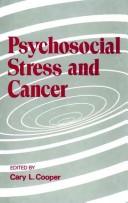| Listing 1 - 4 of 4 |
Sort by
|
Book
ISSN: 21097232 ISBN: 9782200287726 2200287720 Year: 2013 Publisher: Paris: Armand Colin,
Abstract | Keywords | Export | Availability | Bookmark
 Loading...
Loading...Choose an application
- Reference Manager
- EndNote
- RefWorks (Direct export to RefWorks)
L'épuisement professionnel, ou burn out, est généralement défini comme un syndrome associant un état d'épuisement physique et psychique intense, un ensemble d'attitudes relevant du cynisme et de la déshumanisation, et un effondrement du sentiment d'efficacité personnelle. Il concernerait de 5 à 10 % des travailleurs et, dans certaines professions, jusqu'à 40 % des effectifs. Dans les cas les plus graves, il peut conduire à la dépression, voire à la tentative de suicide. Si elle est particulièrement abondante, la littérature à laquelle il donne lieu repose toutefois sur un nombre finalement assez restreint de travaux théoriques considérés comme classiques. C'est pourquoi cet ouvrage, rédigé par de jeunes chercheurs en psychologie, en sociologie ou en sciences de gestion, entend ouvrir quelques pistes théoriques ou pratiques. Il s'intéresse à des professions aussi diverses que les travailleurs sociaux, les aides-soignants, les chefs d'entreprise, les entrepreneurs de travaux forestiers ou les préparateurs de commandes de la grande distribution. À partir de plusieurs expérimentations de terrain, des pistes d'actions sont proposées en matière de diagnostic, d'analyse et de prévention du burn out.
Book
ISBN: 0898761395 Year: 1988 Publisher: New York Gardner Press : Distributed to the trade by Kampmann
Abstract | Keywords | Export | Availability | Bookmark
 Loading...
Loading...Choose an application
- Reference Manager
- EndNote
- RefWorks (Direct export to RefWorks)

ISBN: 0471904775 9780471904779 Year: 1984 Publisher: Chichester : Wiley,
Abstract | Keywords | Export | Availability | Bookmark
 Loading...
Loading...Choose an application
- Reference Manager
- EndNote
- RefWorks (Direct export to RefWorks)
Psychiatry --- Oncology. Neoplasms --- Stress (Psychology) --- Cancer --- Stress, Psychological --- Neoplasms --- Social aspects --- Psychosomatic aspects --- Psychological aspects --- complications --- etiology --- Psychological aspects. --- Psychosomatic aspects. --- Social aspects. --- Etiology. --- Complications. --- Stress (Psychology). --- Cancer - Social aspects --- Cancer - Psychosomatic aspects --- Cancer - Psychological aspects --- Stress, Psychological - complications --- Neoplasms - etiology
Book
ISBN: 1848824181 9786613355201 1283355205 184882419X Year: 2012 Publisher: New York : Springer,
Abstract | Keywords | Export | Availability | Bookmark
 Loading...
Loading...Choose an application
- Reference Manager
- EndNote
- RefWorks (Direct export to RefWorks)
There is a growing trend for the incorporation of stress management into cardiac rehabilitation programs and into preventive cardiology. However, stress is multifaceted, often misunderstood, and requires as much scientific scrutiny as other pathological processes relevant to cardiology. The quality of research into stress management is variable, and care is required in identifying effective evidence-based methods. There is thus a need for better understanding of stress and its ramifications among cardiologists, other clinicians caring for cardiac patients, and by those involved in primary prevention. Stress and Cardiovascular Disease provides an up to date survey of research, highlighting the clinical implications of physiological and population studies of stress. Each chapter addresses a particular aspect of this exciting field of basic and clinical research. This multidisciplinary volume will serve as an aid to physicians in their management of stress-related issues in cardiac patients and high-risk individuals.
Cardiovascular Diseases -- psychology. --- Cardiovascular system -- Diseases. --- Cardiovascular system -- Diseases -- Physcosomatic aspects. --- Cardiovascular system -- Effect of stress on. --- Cardiovascular System -- pathology. --- Heart -- Effect of stress on. --- Stress, Psychological -- complications. --- Cardiovascular system --- Diseases --- Anatomy --- Behavioral Sciences --- Medicine --- Psychophysiology --- Behavioral Symptoms --- Behavior --- Psychological Phenomena and Processes --- Health Occupations --- Behavioral Disciplines and Activities --- Behavior and Behavior Mechanisms --- Psychiatry and Psychology --- Disciplines and Occupations --- Stress, Psychological --- Cardiovascular Diseases --- Cardiovascular System --- Pathology --- Psychology --- Health & Biological Sciences --- Effect of stress on --- Physcosomatic aspects --- Stress (Physiology) --- Stress (Psychology) --- Psychosomatic aspects. --- Emotional stress --- Mental stress --- Psychological stress --- Tension (Psychology) --- Physiological stress --- Tension (Physiology) --- Medicine. --- Health promotion. --- Internal medicine. --- Cardiology. --- Medicine & Public Health. --- Internal Medicine. --- Health Promotion and Disease Prevention. --- Medicine/Public Health, general. --- Mental health --- Diathesis-stress model (Psychology) --- Life change events --- Type A behavior --- Adaptation (Biology)
| Listing 1 - 4 of 4 |
Sort by
|

 Search
Search Feedback
Feedback About UniCat
About UniCat  Help
Help News
News